Events
Strong Forest Resilience Requires More than Passive Conservation
03 06 2024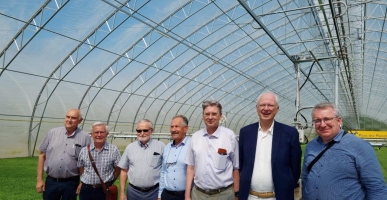
Impacts of climate change on forests are becoming more complex and much more severe. Long-lived trees struggle to adapt to relatively rapid climate change. Often, active human support and enhanced forest sustainability, rather than passive conservation, proves to be a more effective way to preserve biodiversity and ecosystem-important tree species. Therefore, boosting the sustainability of forests and the application of nature-friendly and sustainable practices have become important activities of practical forestry. However, the optimum balance between often conflicting economic and ecological functions of forests is not easy to establish in Lithuania. It requires solutions based on science and competences.
On 28 May 2024, the State Forest Enterprise (SFE) Panevėžys Nursery hosted a meeting of the Presidium of the Lithuanian Academy of Sciences (Academy) and the Division of Agriculture and Forestry Sciences on Innovations in Forestry for Enhancing Forest Sustainability and Biodiversity Enrichment. The aim of the meeting was to familiarize with the activities of the SFE and discuss how the efficiency of the introduction of scientific innovations in the forest sector might be improved, starting from the reforestation and forest nursery sector.
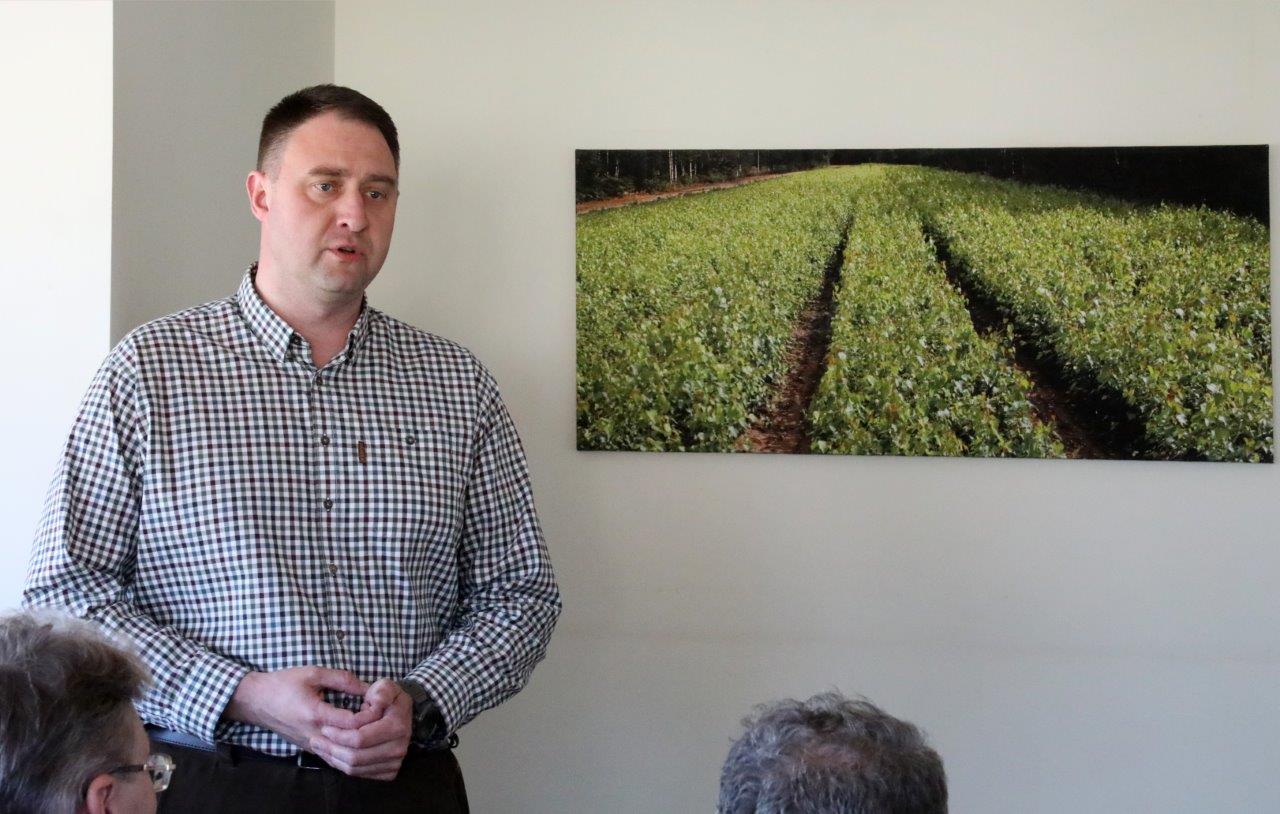
Valdas Kaubrė, Director General of the SFE, welcomed the participants and pointed out that SFE activities have always been based on sound arguments and scientific results, and that cooperation with scientific institutions has led to innovative and sustainable forestry solutions. He stressed that the meeting was taking place at the Panevėžys Regional Unit nursery for a reason, as the nursery is considered to be the most modern one in the Baltic States, where the latest and most advanced technologies for growing forest seedlings have been introduced and expanded every year. It is widely recognized that natural recovery of forest is insufficient and needs to be supported by planting new trees, thus a vast quantity of planting material is required. In addition, these seedlings need to be strong, genetically resistant to environmental stressors and of high quality.
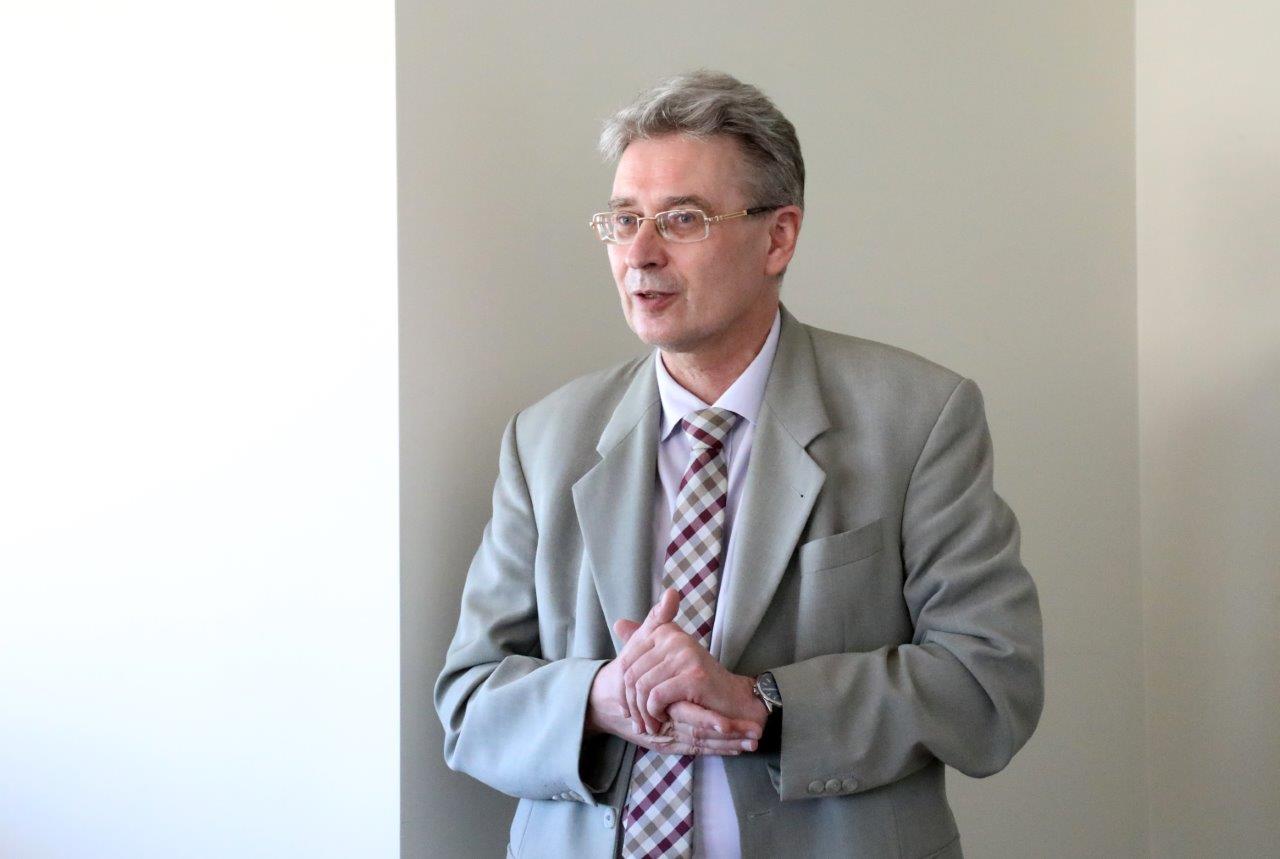
President of the Lithuanian Academy of Sciences Jūras Banys and Vidmantas Stanys, head of the Academy Division of Agricultural and Forest Sciences, emphasised the economic, ecological and social importance of forests and highlighted the impact of climate change on forest ecosystems. It was pointed out that the Academy were always ready and willing to share their multidisciplinary scientific knowledge. Moreover, it was stressed that in times of uncertainty due to such factors as the obvious effects of climate change, turbulent geopolitical situation and growing global population causing food shortages, the challenges need to be addressed at a faster pace. It was concluded that those problems might be successfully overcome only by applying advanced science-based technologies.
Valdas Kaubrė, Director General of VMU, presented the innovations being introduced in all areas of the Forestry Agency's activities: investment in enhancing the adaptability of trees through innovative programmes for the genetic improvement of forest trees, high efficiency of plantation production through modernisation of nurseries, forest inventory and management using remote sensing methods and AI algorithms. He also stressed that in order to sustainably and responsibly manage the country's forests, to actively contribute to increasing Lithuania's forest cover, enhancing biodiversity and forest ecosystems, and mitigating climate change, it is important to continuously invest in new technological solutions and combine advanced working principles with the forestry traditions.
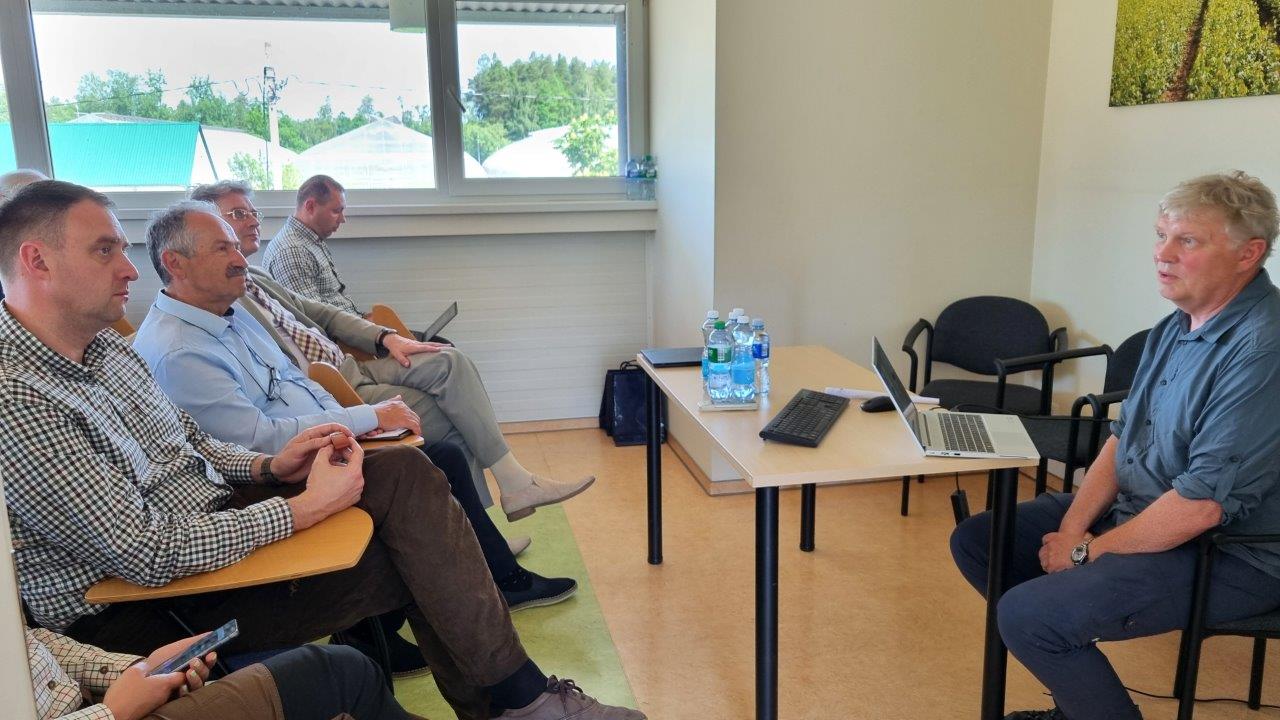
Prof. Darius Danusevičius (chairman of the Section of Forestry Sciences in the Academy) emphasised the complexity and importance of the forest sector and the need to agree on a strategy for its development, taking into account new factors such as the escalating geo-political situation and the increased damage by climate change stressors. To win the battle against the complex stressors hitting forests, the academician said, research-based innovations such as molecular breeding and gene editing to strengthen the resilience of trees to millions of pest epidemics, or the introduction of genetic monitoring to provide early warning of an impending wave of species decline, are needed to prevent losses like the loss of the dearest tree in Europe Fraxinus excelsior. The Lithuanian Oak Development Programme was also presented, which aims to significantly increase the area of oak forests in Lithuania, and this also requires science-based solutions.
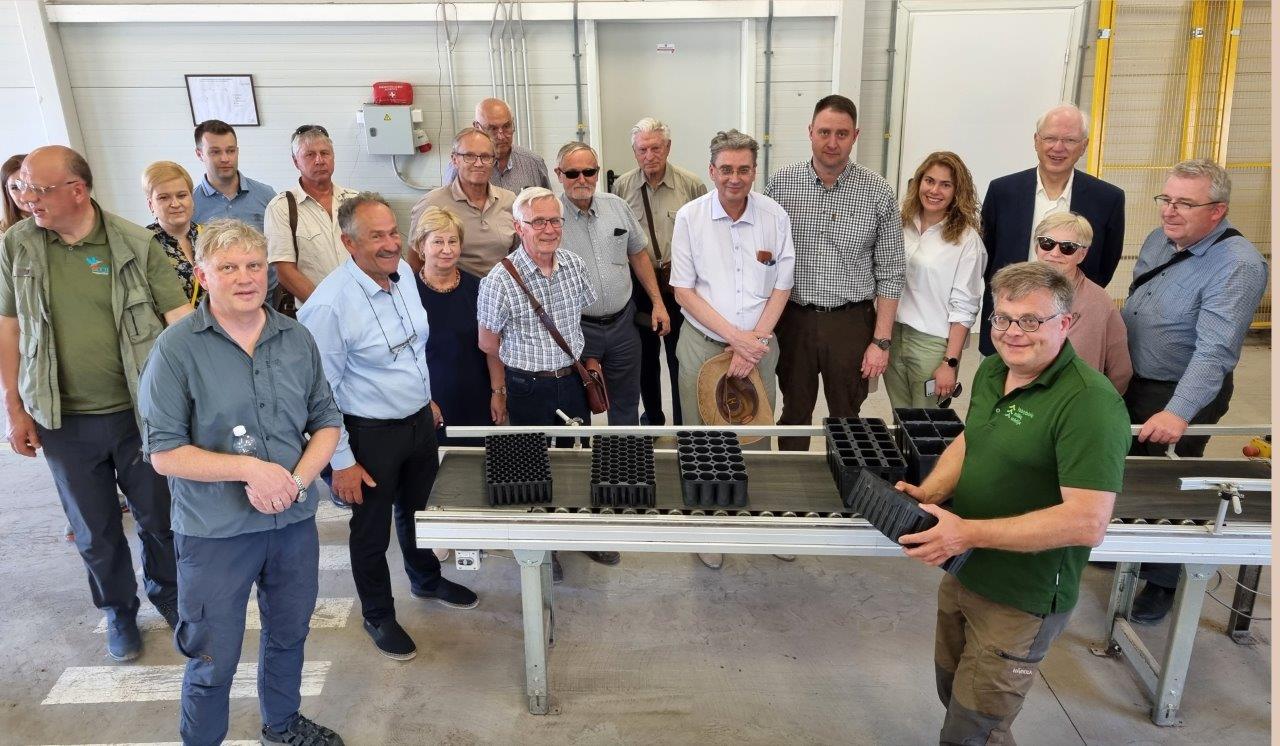
Egidijus Kaluina, head of VMU Panevėžys Nursery, presented the activities of his institution, which is the largest and most modern nursery in Lithuania. The custom improvements of the standard nursery technologies are admired even by the manufacturers of planting equipment. The nursery has installed an efficient heat treatment line for oak acorns in Europe, which allows it to preserve large quantities of viable oak acorns for several seasons. An automated sowing, sorting and planting line, a plantation cross-fertilisation system, a planting robot and a number of other innovative methods are in place. The complex includes seed preparation and sowing lines, waxing lines, a seedling cooler and a container sorting line, a thermotherapy line for oak acorns and an acorn storage cooler, greenhouses equipped with state-of-the-art irrigation, ventilation and shading equipment, expanded growing areas and a unique day-night site, which creates conditions for the planting material to harden off more quickly and to become woody. These innovative technologies enable the production of as many as 20 million forest tree seedlings per year. The academics were impressed by the ingenuity of the nursery's manager, E. Kaluina, and his ideas on how to improve the equipment produced by the major nursery equipment manufacturers, adapting it to the conditions of a warming climate or to the specificities of Lithuania.
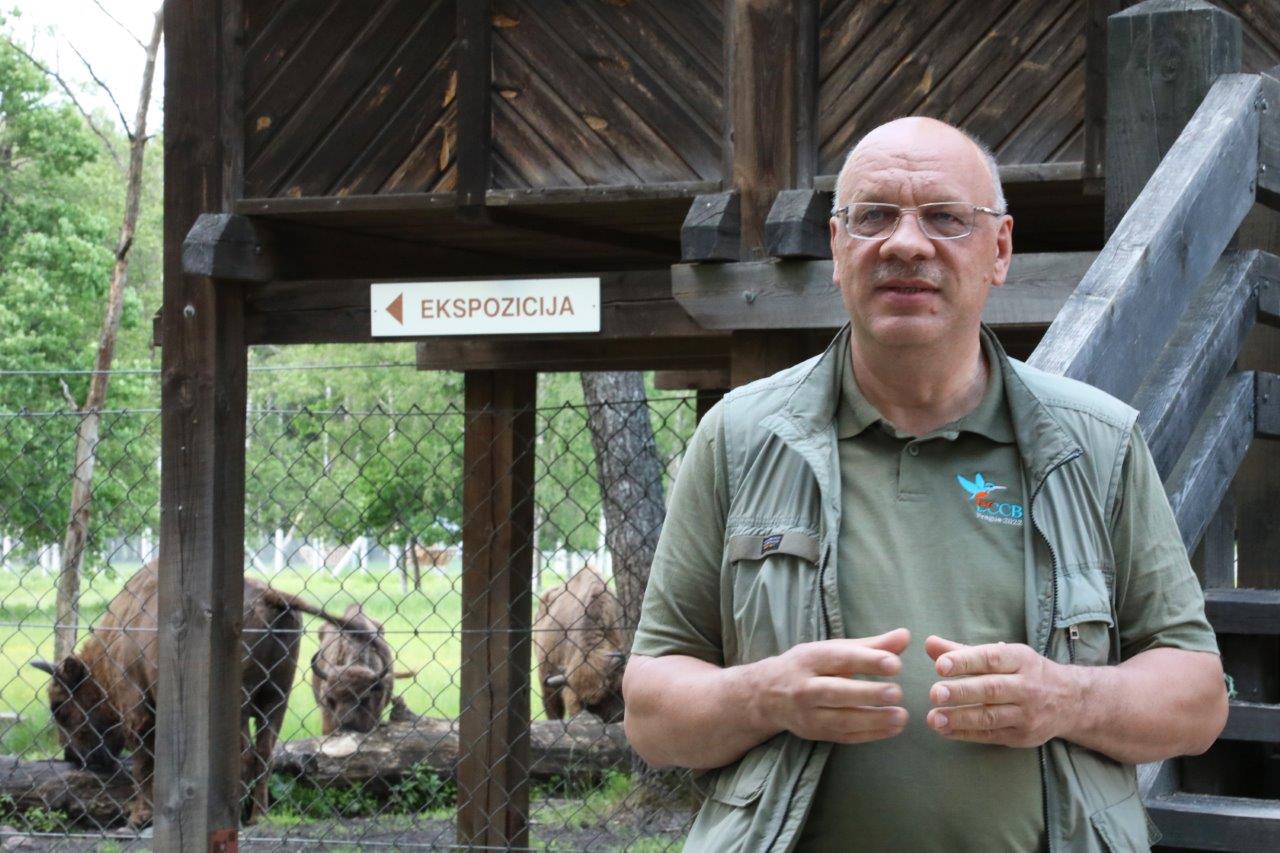
The participants also visited the SFE Pašiliai bison reintroduction facility, where Professor Gediminas Brazaitis of the Vytautas Magnus University Academy of Agriculture presented the programmes for biodiversity enhancement in forests and the problems faced when introducing bisons to their natural environment.
Discussions on how to enhance scientific innovation in forestry highlighted the need for stronger coordination of research and experimental development in the field under the Ministry of Environment, where diverse funding instruments are often complex and not easily adapted to suit practical forestry.
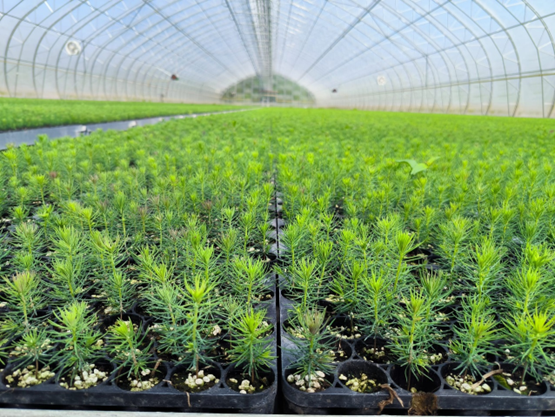
By applying scientific innovations and modern technologies, State Forest Company produces about 20 million forest seedlings of high adaptive value annually.
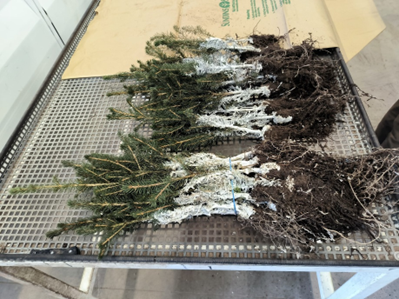
Norway spruce seedlings treaded against game browsing.
Information from the Department of Agricultural and Forestry Sciences
